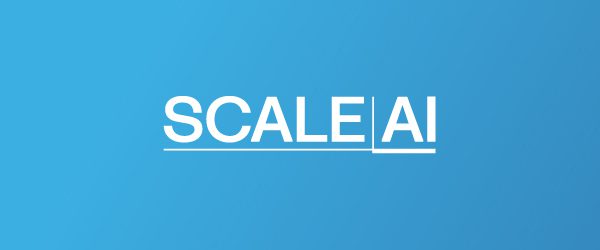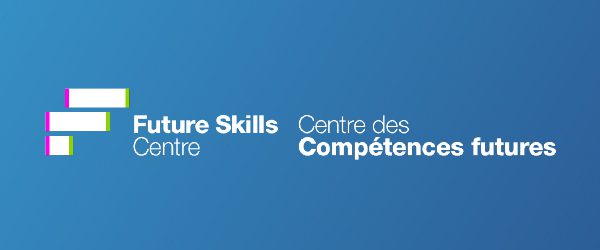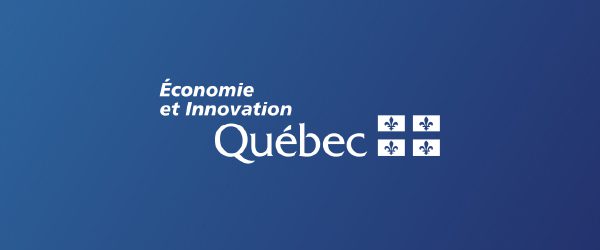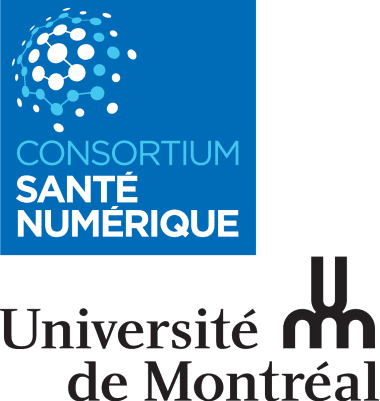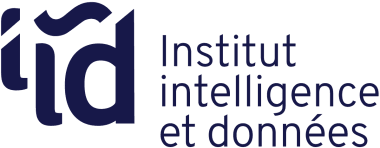A world-class AI research and transfer institute
Contents
This report covers the period from April 1, 2021, to March 31, 2022. It was designed by the IVADO Communications department. The original French version was written in compliance with its guide to inclusive language. Reproduction in whole or in part without the written permission of IVADO is prohibited.
Vision
Science and research: more important than ever in times of uncertainty
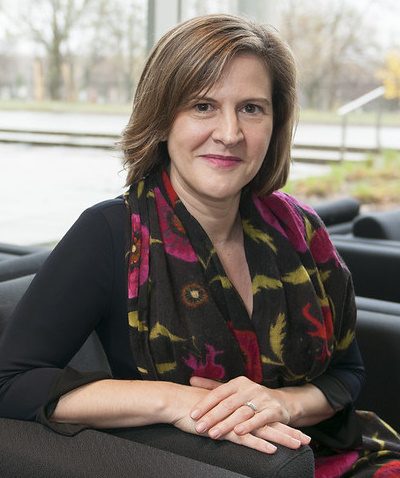 “More than ever before, scientific research and social dialogue are of crucial importance in tackling the great challenges of our time. In pursuing its commitment to excellence in hastening the responsible development and deployment of artificial intelligence (AI), IVADO is a source of pride for our community in Québec and the rest of Canada. Climate and the environment, healthcare and responsible adoption of AI technologies are among the structure-enhancing areas on which the institute is focusing its energy to deliver AI solutions for the common good.
“More than ever before, scientific research and social dialogue are of crucial importance in tackling the great challenges of our time. In pursuing its commitment to excellence in hastening the responsible development and deployment of artificial intelligence (AI), IVADO is a source of pride for our community in Québec and the rest of Canada. Climate and the environment, healthcare and responsible adoption of AI technologies are among the structure-enhancing areas on which the institute is focusing its energy to deliver AI solutions for the common good.
In the summer of 2021, Luc Vinet, Aisenstadt Professor of Physics and former rector at Université de Montréal, and the recipient of prestigious scientific and civil distinctions, took over leadership of the Institute. Building on the firm foundations laid by his predecessor, Gilles Savard, and leveraging the successful strategic alliance between machine learning and operations research, he is guiding IVADO toward a new objective: to develop AI that is robust, reasoning, and responsible all at once. These three attributes are indispensable for enabling AI-driven technologies to provide solutions to the increasingly complex challenges we face. Accordingly, IVADO intends to step up its collaborations with neuroscience researchers to shape AI that is more akin to human intelligence and that incorporates in its design the principles of responsible innovation that Montreal champions.
Working together with the research community, industry players, institutions and the general public, IVADO is a driver of technological and social change, drawing on the excellence that is a hallmark of its extensive network. And because such advances cannot happen without a competent, committed new generation, the Institute is expanding its various training initiatives across the scientific, technological, engineering and mathematics fields, as well as in the social sciences, which are essential to providing an ethical framework for AI.
There is every reason to believe that IVADO’s quest for knowledge and progress will in turn give rise to new questions, which will be most stimulating to researchers.”
– Marie-Josée Hébert, Chair of the Board of IVADO and Vice-Rector of Research, Discovery, Creation and Innovation, Université de Montréal
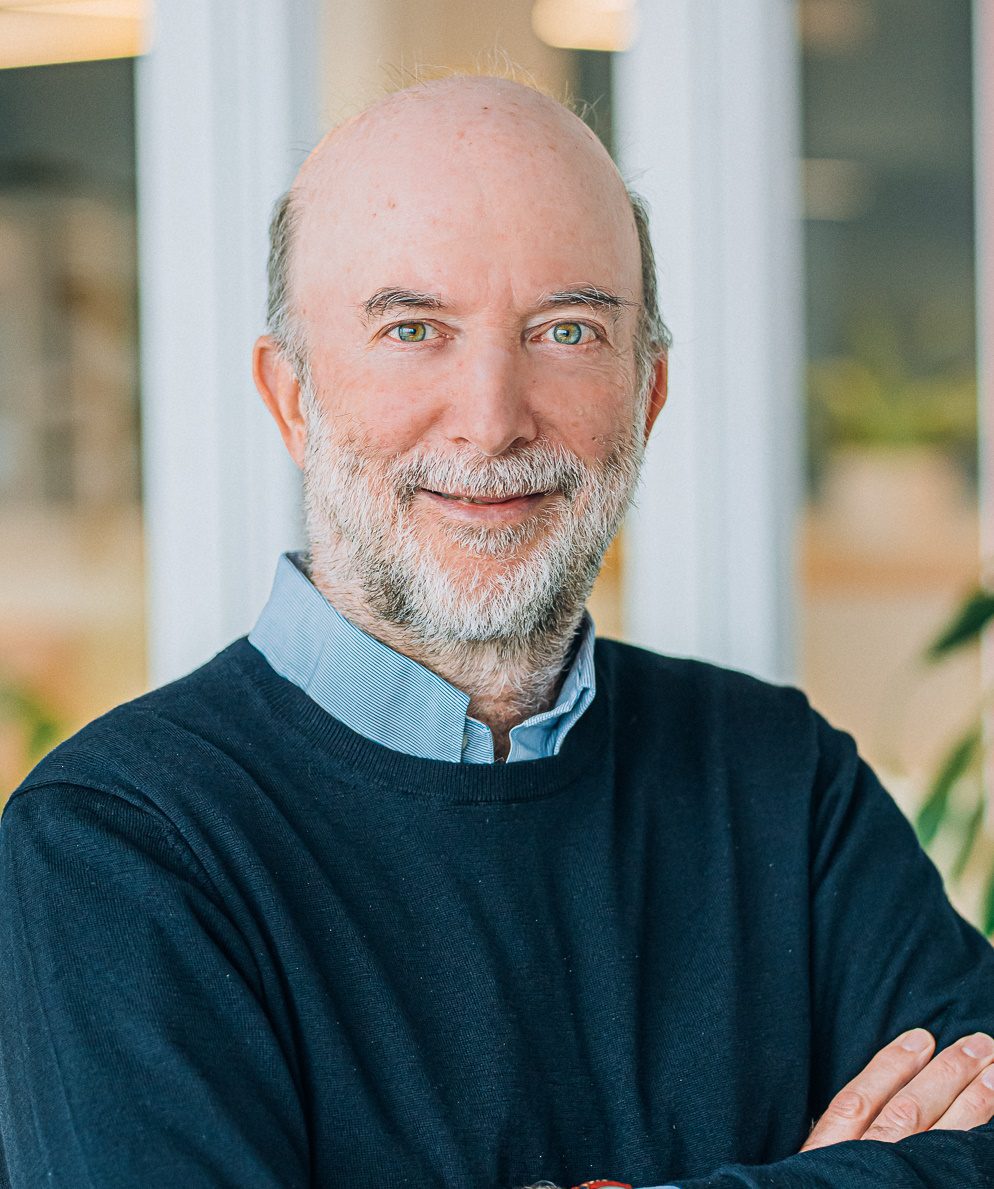 “When I arrived at IVADO a year ago, I discovered an institute of impressive calibre, powered by exceptional scientists, supported by committed partners, and energized by an outstanding staff. Since its inception, IVADO has played a key role in Québec’s thriving artificial intelligence cluster, which is today a crown jewel of our R&D. From knowledge development and transfer to training and community action, IVADO is supporting transformative initiatives, initiating collaborative projects, and enabling interactions between individuals and organizations. This is something we can all be proud of.
“When I arrived at IVADO a year ago, I discovered an institute of impressive calibre, powered by exceptional scientists, supported by committed partners, and energized by an outstanding staff. Since its inception, IVADO has played a key role in Québec’s thriving artificial intelligence cluster, which is today a crown jewel of our R&D. From knowledge development and transfer to training and community action, IVADO is supporting transformative initiatives, initiating collaborative projects, and enabling interactions between individuals and organizations. This is something we can all be proud of.
Since its establishment in 2016 via a grant from the Canada First Research Excellence Fund titled “Data Serving Canadians,” IVADO has benefited from many other sources of funding. Our mid-term report spoke volumes about IVADO’s excellence and how fortunate Québec is to be home to a unifying, multidisciplinary AI institute. I congratulate all the architects of that success.
Our success was achieved thanks to the work of key builders including Gilles Savard, Andrea Lodi, Jean-Marc Rousseau and Laurence Beaulieu, who have since handed over the reins. On behalf of our community, I extend warm thanks to them. As befits a healthy organization, new talents are following in their footsteps to take IVADO even further. I extend a warm welcome to Pierre Dumouchel, Director of Technology Transfer, Yolaine Beaulieu, Deputy CEO, Mélanie Bosc, Training Director, and Catherine Cardinal, Communications and Marketing Director.
Today, IVADO is looking to the future with great ambition. Our team has submitted a plan to the Government of Québec to expand our knowledge transfer activities to the entire province. Our sights are not set solely on Québec, however: IVADO also intends to engage stakeholders across the country to orchestrate a national AI workforce development program.
Lastly, IVADO is responding to the latest Canada First funding competition with a program titled “Shifting Paradigms for a Robust, Reasoning, and Responsible Artificial Intelligence and its Adoption (R3AI)”, under which we will work to accelerate the emergence of scientific discoveries in multiple fields.
As a link between the past and the future, this annual report provides an overview of the impact of the actions undertaken this year in every sector in which IVADO is engaged. You will learn about the transformative research projects initiated with a $6-million budget, the young entrepreneurs and startups we are successfully supporting, innovations that have emerged from collaborations with partners, innovative training approaches, and a host of initiatives designed to foster the diversity and vitality of our student community. All of this is made possible by the financial support of the federal and provincial governments and their funding agencies, and by the three Campus Montréal universities, to which I extend my sincerest gratitude.”
– Luc Vinet, CEO, IVADO
Impact
IVADO: a key player in AI
It is well known that Canada is among the leaders on the international AI map! In the Tortoise Global AI Index for the first quarter of 2022, the country ranks fourth in the world, and Québec ranks seventh for AI performance. In concert with its partners and collaborators, and with a constant focus on serving society, IVADO is mobilized to transform knowledge into solutions for the future.
Talent
> 0
hours of training given (excluding MOOCs)
> 0
participants trained (excluding MOOCs), 32% of whom are women*
*TechnoCompétences estimates that 18.67% of Québec AI professionals are women
> 0
people mobilized as a teaching team
Knowledge
$0 M
in support for research via scholarships and grants
$41 M since 2016
$0 M
dedicated specifically to 5 major scientific challenges
0
scholarships awarded
522 since 2016
Transfer
0
new collaborative research projects started
548 projects since 2017
0
NPOs, startups and SMEs involved in these new projects
> $0 M
estimated value of these new projects
> $76 M in total since 2017
Community
0
new IVADO members and partners
167 in total
> 0
people involved in IVADO initiatives in ethics as well as equity, diversity and inclusion (EDI)
> $0 $
in sponsorships awarded to support AI research and science
Team
AI: a solution for the future
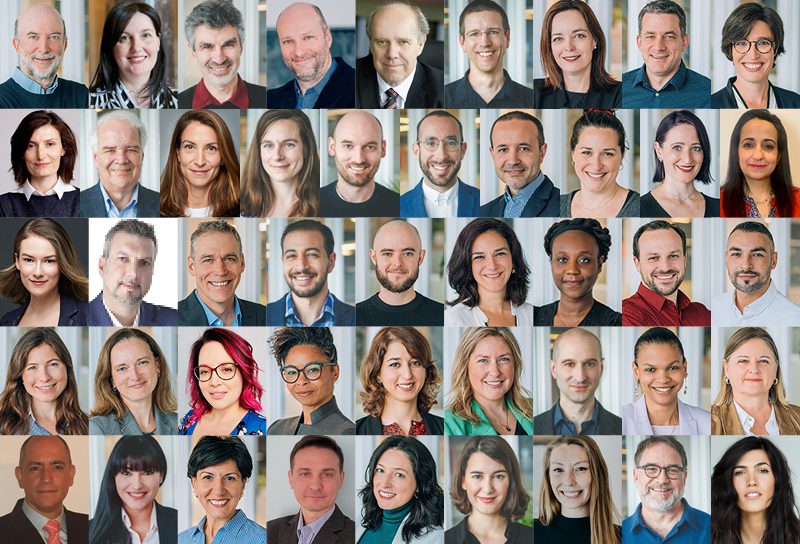
Despite the ongoing labour shortage, which has not spared any fields, the AI sector remains attractive. Over the past year, IVADO has been fortunate to welcome Luc Vinet as its new CEO, and his very successful track record has helped inspire some new arrivals. Mr. Vinet has been joined by Yolaine Beaulieu as Deputy CEO and by Pierre Dumouchel as Director of Technology Transfer. Two new divisions have also been created to support IVADO’s expansion: a Training division led by Mélanie Bosc, and a Communications and Marketing division helmed by Catherine Cardinal. Lastly, 12 new recruits have added invaluable new expertise to the Operations team. Together, the IVADO team members are enthusiastically advancing its mandate to transform AI research into solutions for the future.
IVADO’s governance structure comprises more than 50 people. The past year has seen the addition of new members from the University of Toronto and Google, among others.
Training
Growing demand for qualified professionals
Some 45,000 professionals are active in Québec’s AI ecosystem, according to the latest report by TechnoCompétences. Organizations’ needs for qualified workers and training are therefore continuing to increase. IVADO is well positioned to help equip these organizations in Québec and the rest of Canada by providing training and tools for professionals, managers and students.
> 0
people acquired new AI knowledge via IVADO training (excluding MOOCs)
> 0 %
of them identify as members of a visible minority in Canada
0
new enrolments in IVADO online training course (MOOCs), including 35.2% from Canada
3 flagship initiatives in focus
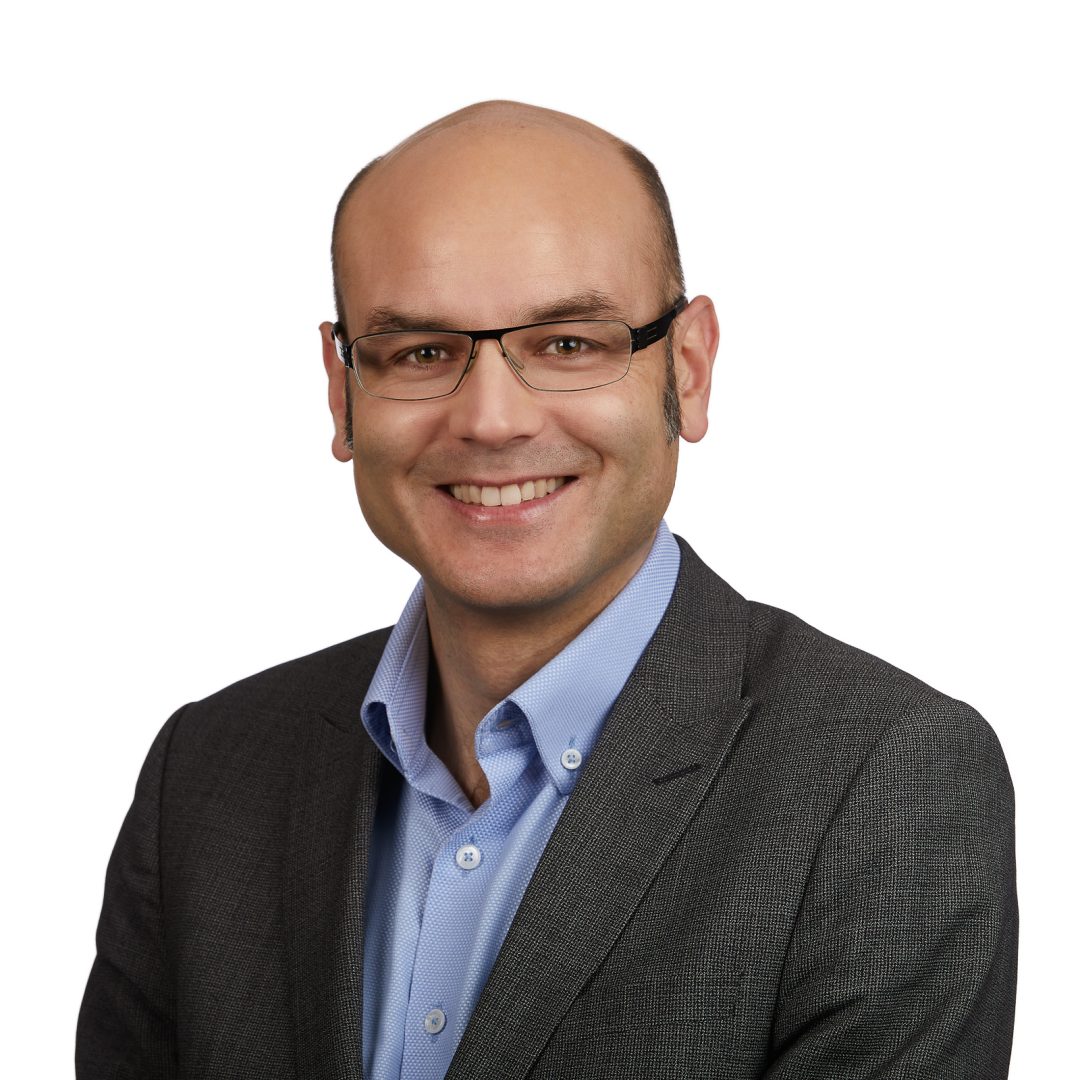
“I wanted to congratulate you for this excellent webinar on digital therapies and videogaming. The content and organization were of extremely high quality. The audience’s enthusiasm was also evident from the number of questions and comments. I was riveted by the presentations!”
– François Bergeron, MEDTEQ+
IVADO at the service of employment professionals
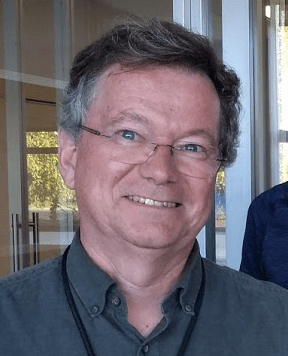
“I was fortunate enough to once again be a Data.Trek judge. The 2022 Challenge was even better than in 2021, with more attendees, better supervision and guidance, practical tutorials and truly interesting projects. (I would have liked to be involved in those projects myself; that says it all!) This is such a great launching pad for the field of machine learning. It’s designed for curious people who want hands-on experience to discover and familiarize themselves with a field that will have a huge influence on science and technology in the 21st century. Watching the parade is great; marching in it is even better! Join the adventure in 2023!”
– Pierre Gravel, judge for the 2022 Data.Trek Challenge
“Adoption and Innovation in Artificial Intelligence” is the name given to the training program developed by the IVADO team for managers and leaders. It gives them an opportunity to examine real-world case studies that reflect their realities, instilling in them the reflexes they need to identify promising projects in their organizations and assess their viability.
Over the past year, three organizations benefited directly from this program via 10 training events. In collaboration with Investissement Québec – CRIQ and Innov&Export PME, IVADO also adapted the program to provide training sessions to 13 organizations in Eastern Québec.
IVADO at the service of the emerging generation
One noteworthy initiative of the past year has been the collaboration between IVADO and Mila to share a bank of student candidates with professors in the Québec AI ecosystem—a project designed to expedite recruitments for the benefit of one and all. In addition, all IVADO scholarship awardees now pledge to take the training on Ethics + Equity, Diversity and Inclusion in Digital Intelligence. A number of other teaching activities have also been added to the overall IVADO training portfolio, and are aimed mainly at students. Three of these activities are outlined here:
Building AI skills remotely thanks to MOOCs (massive open online courses)
Since 2020, the IVADO team has been hard at work developing a total of 14 MOOCs dedicated to AI: seven in English and seven in French. Here is a brief overview of the topics and short-term roll-out calendar:
Machine Learning in Finance: scheduled for release in summer 2022
Apprentissage automatique: scheduled for release in fall 2022
Recherche opérationnelle: scheduled for release in fall 2022
Science des données: scheduled for release in fall
Our MOOCs in the media:
Recommender Systems »
Bias and Discrimination in AI »
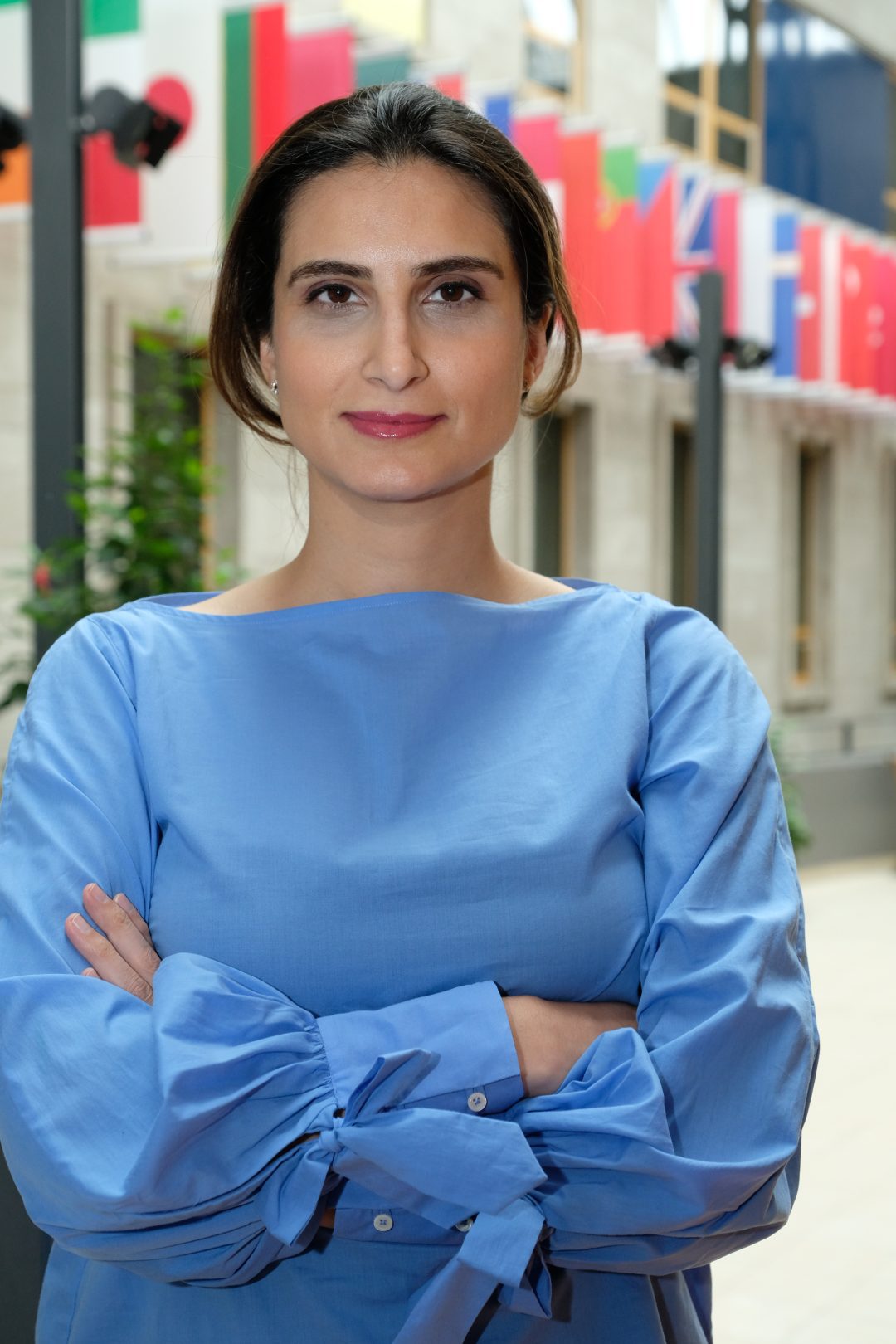
“It was a pleasure and a great experience collaborating with IVADO on the Operations Research MOOC. The IVADO team has worked closely with us for several months to prepare the course. Although teaching online has become a norm over the past few years, the experience is still very different from seated classes. Teaching in front of the camera with no live audience can still be stressful. With the support we received from the team, this experience has indeed become an amazing one. I believe the joy of working with this great team is reflected in the course we prepared and I hope the participants in the MOOC will enjoy it as much as we did when preparing it!”
– Maryam Darvish, Ph.D., Assistant professor, Department of Operations and Decision systems, FSA ULaval, Member of CIRRELT
Key partnerships for stimulating training in Québec and across Canada
Acknowledging IVADO training collaborators
Québec stands out for its high concentration of organizations specializing in highly specific areas of AI. IVADO collaborates directly with many of them to deliver teaching content that reflects the very latest knowledge in this rapidly evolving field.
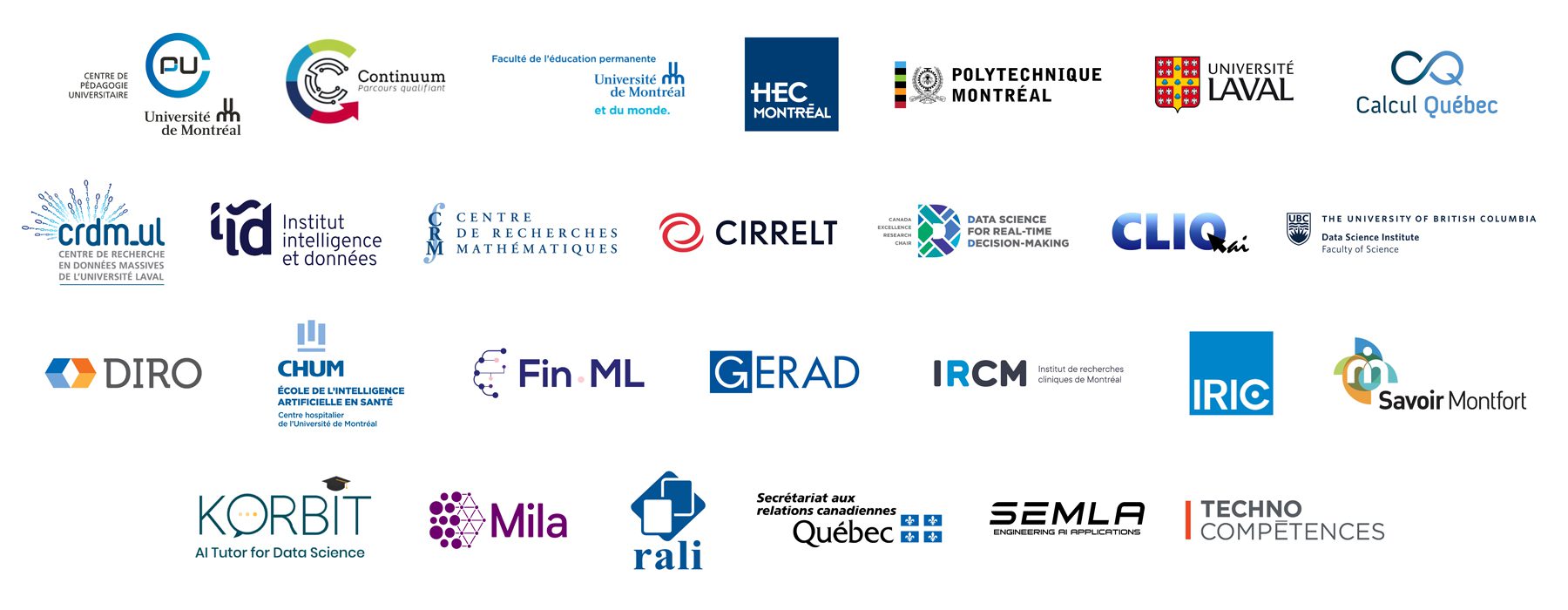
Knowledge
AI to tackle the challenges of our time
Research is more than ever of vital importance in today’s turbulent international context. Accordingly, IVADO conducts its activities so as to ensure that it responds to the challenges facing our society. Health challenges, the climate emergency, the need to generate innovations—all of these are lessons that have been brought into focus by the COVID pandemic, among other things, and which have a direct impact on IVADO’s activities. The institute is fully committed to harnessing AI research to power the emergence of new social innovations.
$0 M
in support of fundamental research, with 522 scholarships and grants awarded since 2016
0 %
of student members of the Fonds de Recherche du Québec / IVADO Chairs in Equity, Diversity and Inclusion identify as members of underrepresented groups
> 0
IVADO postdoctoral fellows since 2016
3 flagship initiatives in focus
Collaboration and multidisciplinarity for amplified reach
IVADO relies on the support of its 37 professors across the Université de Montréal, Polytechnique Montréal and HEC Montréal campus, as well as its nine academic members, which comprise research centres with complementary leading-edge expertise:
$6 M for research projects with the potential to improve the health of populations and the environment
IVADO launched a major consultation within its community in the summer of 2021 to decide on the best approach to strengthening its positioning on national and international strategic challenges. That initiative led to the January 2022 announcement of $6 million in grants to support work by 17 researchers to tackle five major scientific challenges aimed at enhancing the well-being of people and the environment.

“The impetus for the broad-based consultation led by IVADO was to favour co-construction and multidisciplinarity, which are essential for the advancement of knowledge and research in artificial intelligence. The success of the AI sector in Québec rests on a rich base of fundamental research that is now being harnessed to improve the health and wellness of our population and our environment. These strategic projects aim to promote use of AI across various sectors in a manner that is both forward-looking and socially responsible.”
– Janice Bailey, Scientific Director, Fonds de recherche du Québec Nature et technologie, and
Carole Jabet, Scientific Director, Fonds de recherche du Québec Santé,
co-chairs of the advisory committee that supported IVADO in this initiative
Ten transformative research projects being led by IVADO and its community

AI: the strong link in the (supply) chain
Nearly all decision problems involve some form of uncertainty. This is especially true in supply chains where, e.g., demand, cost, capacity, and travel time’s high variability considerably complicate the planning of procurement, production, distribution, and service activities. Due to constantly evolving environments and the high frequency of data acquisition, classical decision-making that is based on training models, validating them, to finally optimize decisions does not suffice anymore. This research program aims at developing new methods for making the most effective and adaptive use of data in decision-making. It is founded on modern optimization and machine learning perspectives that encompasses developments in deep reinforcement/end-to-end learning, risk averse decision theory, and contextual/distributionally robust optimization. Its mission is three-fold: i) develop the next generation of methods to deal with uncertainty in data-driven risk-aware optimization models by integrating machine learning; ii) identify scientifically challenging and high-impact opportunities for improving robustness in supply chains; and finally iii) stimulate the integration of stochastic optimization models among our partners while defining use cases that will guide future methodological advances. Overall, this program envisions a virtuous cycle of scientific discoveries that are both fuelled by and transformative for an important sector of the Canadian economy.
Team: Erick Delage and Yossiri Adulyasak (HEC Montréal), Emma Frejinger (Université de Montréal)

Ecole: Combinatorial Optimization and AI
Challenges in combinatorial optimization problems are commonplace in operations research. Since exhaustive searches for solutions require computations that are too costly and time-consuming to be carried out, combinatorial optimization solvers rely on heuristics, which are often user-defined. Resorting to such heuristics, however, introduces non-trivial decisions into the problem-solving process; e.g., which node to solve in a branch-and-bound algorithm. Consequently, the solvers may fail to exploit the subtle statistical similarities between problem instances. Machine learning is a powerful tool for overcoming this obstacle: algorithms can replace these heuristics with data-driven models, thereby leading to a new generation of highly adaptive and more efficient solvers. This is where the Ecole (Extensible Combinatorial Optimization Learning Environments) software library comes in. It has been designed specifically to facilitate development of machine-learning algorithms for combinatorial optimization, providing rapid and secure prototyping tools and reproducible benchmarking protocols. Thus, Ecole delivers an open-source suite of efficient, ready-to-use learning environments that are readily adaptable to other purposes.
Lead team: Andrea Lodi, Antoine Prouvost, Maxime Gasse (Polytechnique Montréal)
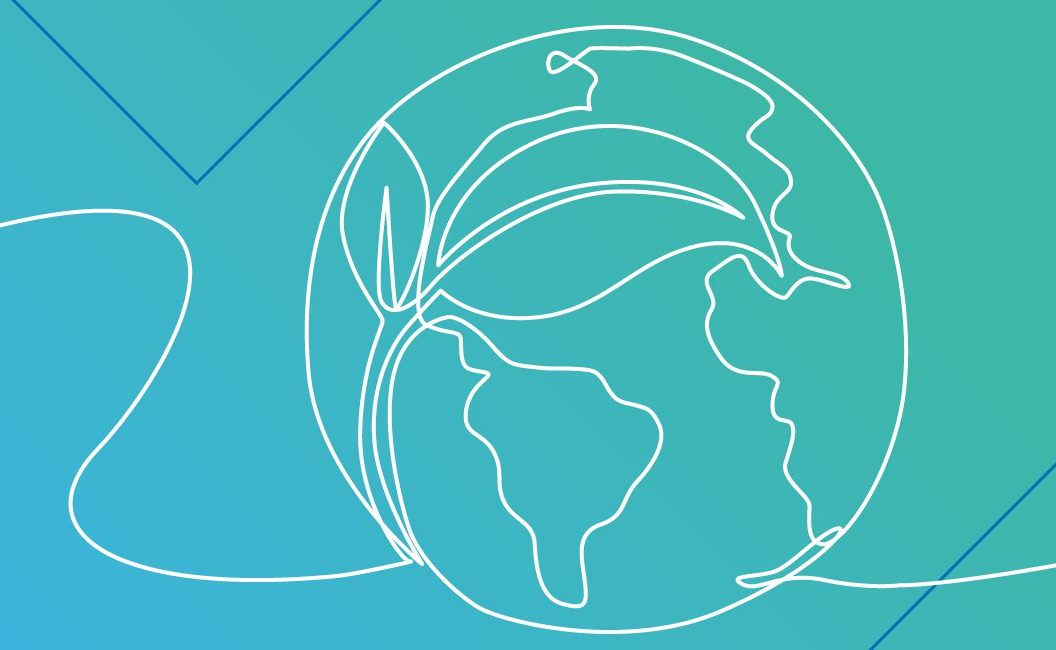
Plant life under the lens of AI: biodiversity and phenology
Climate change is having a disruptive effect on ecosystems. It is altering, in unpredictable ways, the phenology of plants as well as their biodiversity, particularly species distributions across entire landscapes. These phenomena are a major source of uncertainty in the calculation of the global carbon budget and consequently in formulating future climate projections. Traditional field-based sampling, however, does not allow researchers to keep proper track of these changes. Remote sensing technologies such as phenocams and drones, meanwhile, offer potential to study plant phenology and biodiversity in great detail across spatial scales. To unlock their full potential, however, AI is the key. Building on the most recent developments in computer vision and meta-learning, this program will develop algorithms making it possible to map plant species and their phenological signatures. The algorithms will be made available to the community via an active learning platform. Users will this be able to transform remotely sensed imagery into actionable data. The research conducted under this program will therefore deliver potent tools to help combat biodiversity loss and the harmful effects of climate change.
Team: Etienne Laliberté (Université de Montréal), Christopher Pal (Polytechnique Montréal), David Rolnick (McGill University), Oliver Sonnentag (Université de Montréal), Anne Bruneau (Université de Montréal)

This climate does not exist. . . yet: AI and climate change
The experts agree: climate change induced by human activity is wreaking havoc around the world and heralding an unprecedented planet-wide crisis. Despite the gravity of the situation, however, citizen efforts and government responses remain muted. This was the impetus for “This Climate Does Not Exist.” The main goal of this project, led by Mila, is to sway members of the public and policy-makers to action by raising their awareness of the harmful effects of climate change. To that end, “This Climate Does Not Exist” uses a powerful tool, visualization, and targets a motivational emotion: empathy. Leveraging its expertise in machine learning and the environment, the project’s interdisciplinary team developed generative adversarial networks (GANs), a specific type of machine-learning algorithm, that generate hyper-realistic and very detailed images of well-known landscapes as if they were devastated by floods, forest fires, smog or other destructive manifestations of climate change. Available to the public through an online interface, these images make the climate crisis tangible and immediate—and in the process, highlight the urgent need for action.
Team: Sasha Luccioni, Victor Schmidt and Yoshua Bengio (Université de Montréal)

AI is health: algorithms and medical decisions
AI is playing an increasingly important role in health, and this is evident in the expanding development of algorithms to support medical decision making. There are, however, a number of obstacles to scale-up of AI for use in care settings. One such challenge is ensuring the generalizability of models generated by algorithms from medical data. How can we guarantee the effectiveness of one model on a data set with characteristics that differ from the one the algorithm learned with? For example, an algorithm trained using data from a specific population may not perform as well when it encounters data drawn from a different population. This research program therefore aims to improve the generalizability of models used in healthcare. It pursues four objectives: i) set up a research environment in a real-world context; ii) optimize data flows obtained in real-world care settings to serve algorithm research; iii) investigate specific issues related to algorithm generalization and secondary use of medical data; and iv) create an open data set that can be used to build upon the program findings.
Team: Dr Michaël Chassé (Université de Montréal), Nadia Lahrichi (Polytechnique Montréal), Dr An Tang (Université de Montréal)
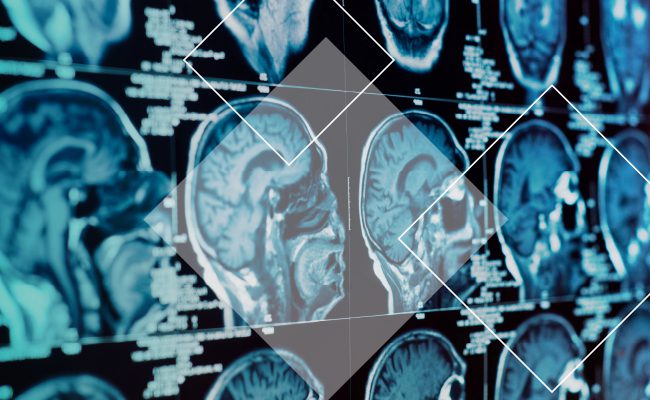
Getting to the marrow of quantitative MRI
Magnetic resonance imaging (MRI) is an indispensable medical imaging technique owing to its non-invasiveness. Until now, the interpretation of MRI scans has been largely qualitative, serving in particular to detect clinical signs. Medical practitioners, however, have long sought quantitative MRI. This is now technically possible, if one considers that the value of a pixel can reflect the physical and chemical properties of tissue. There is, however, a significant obstacle: for the same tissue, the scale of pixel values varies from one MRI machine to another and depending on individual machines’ calibrations. Julien Cohen-Adad and his team set out to overcome that difficulty. With the support of IVADO, they have developed a protocol for standardizing quantitative MRI images of spinal cords, and made it available free of charge via GitHub to encourage its use by radiologists. The protocol—described in a paper published in the prestigious journal Nature Protocols and selected as one of the top 10 discoveries of the year 2021 by Québec Science—will also enable collection of a large quantity of clinical data. These will be used to train AI algorithms and generate models that can automatically interpret MRI scans of spinal cords.
Team: Alexandru Foias, Benjamin De Leener, Charley Gros, Daniel Papp, Eva Alonso Ortiz and Julien Cohen-Adad (Polytechnique Montréal)
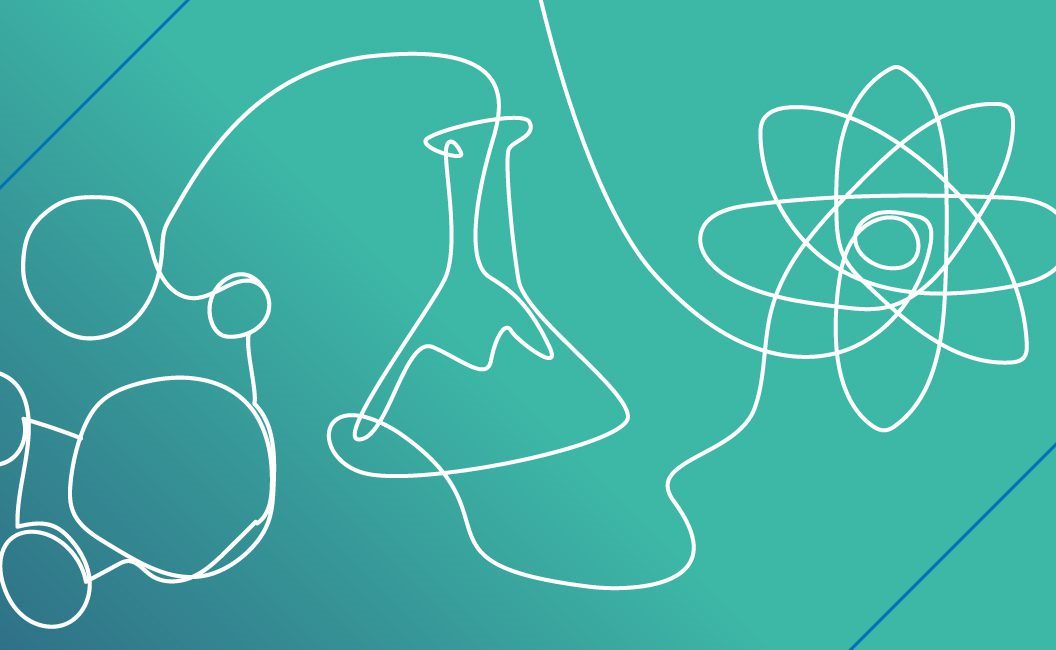
The great molecule rush: AI, medications and materials
Progress in our societies depends on the discovery of effective medications, vaccines and materials. Designing molecules with desired properties is therefore essential. Traditional approaches to designing a new drug, however, are time-consuming and costly. AI holds the potential, however, to revolutionize the process of drug discovery. Algorithms can learn to probe molecules and analyze large amounts of data to reveal elements of interest. This research program aims to build an efficient and effective machine learning framework for searching molecules with designed properties. Its multidisciplinary approach will build upon existing collaborations: one between Mila and IRIC, focused on optimizing algorithms to discover new antibiotics, and the other between Mila and materials experts at McGill University and Université de Montréal, which aims to design materials with environmental applications, such as combating climate change. More broadly, the program is addressing fundamental challenges in AI: on one hand, learning for research and modelling, and on the other, sampling of complex data structures.
Team: Yoshua Bengio (Université de Montréal), Michael Tyers (Université de Montréal), Mickaël Dollé (Université de Montréal), Lena Simine (McGill University)

Great ills require great remedies: AI and medication
For a long time, medicines were natural substances, extracted from plants or even fungi. More recently, medicine has turned to the laboratory, where it is possible to develop entirely synthetic therapeutic molecules. When we are no longer constrained by what can be found in nature, a whole world of possibilities opens up. Since molecules are groupings of atoms of variable size, the number of possible combinations is astronomical: scientists believe that, in theory, up to 1060 distinct therapeutic molecules could exist, and they refer to them as the molecular space. Traditional methods of drug design, however, allow for only a fraction of that space (109 molecules) to be sampled, potentially leaving massive numbers of candidate molecules in the shadows. The LambdaZero project seeks to give a dramatic boost to drug discovery by replacing traditional methods with AI-driven techniques. To that end, the project team developed an algorithm based on Monte Carlo Tree Search, capable of sampling up to 1018 molecules in the molecular space, which would require one trillion years of calculations with existing methods. This algorithm-based method has already enabled the discovery of the most powerful noncovalent AmpC enzyme inhibitor yet known.
Lead team: Michael Tyers, Yoshua Bengio (Université de Montréal)

Humanizing AI: with adoption comes responsibility
AI is now an integral part of everyday life in our modern societies, allowing us to accomplish a wide range of personal and professional tasks, from conducting a search online to automatically translating a text. Despite the multiple ways in which humans already interact with AI, however, a major challenge remains in terms of full adoption of AI-related technologies in Canadian society. Progress is rapid in some areas, but slow or inadequate, and even non-existent, in others. There are many factors behind this uneven penetration of AI, whether users are citizens, employees or consumers, such as hesitancy because of algorithm bias, lack of trust in these technologies, and even low satisfaction with results. A holistic approach to AI is therefore needed to foster adoption. To that end, this research program is adopting a multidisciplinary perspective to investigate the full cycle of responsible AI development, from inception to adoption by users, putting people at the heart of the process. The goal is to map out guidelines for human-centred AI design using a diversified, iterative methodology.
Team: Pierre-Majorique Léger, Sylvain Sénécal (HEC Montréal)

Smart tools to help combat COVID-19
The COVID-19 pandemic disrupted health networks worldwide, forcing care settings to rapidly adapt to a constantly evolving situation. Sainte-Justine University Hospital Centre was no exception in facing these challenges. Among other things, it had to increase capacity in its intensive care unit (ICU) and redesign it to allow for isolation of patients with COVID-19. These changes, though unavoidable, greatly complicated the work of care staff. Their primary work tool, a digital dashboard, still reflected the previous ICU configuration. The dashboard supplies vital information to the staff, including patient status, the names of assigned caregivers, and geolocation of physicians. Realizing that an update was needed, the ICU physicians called upon user-interface experts at Polytechnique Montréal. Funded by IVADO as part of its spontaneous call for proposals to combat COVID-19, this collaborative initiative rapidly resulted in a mockup of an updated ICU resource management dashboard. Based on that success, the team is continuing its work.
Team: Adam Schachner, Célia Mahmoudi, Maxence Hébert-Lavoie, Philippe Doyon-Poulin (Polytechnique Montréal), Lise Boudreault (UQAM), Philippe Jouvet (Université de Montréal / CHU Sainte-Justine)
More than $11 M in scholarships and grants awarded
Over the past year, IVADO has awarded 120 scholarships and grants for a total amount of $11,397,131. These competition-based funding programs will gradually be replaced by the extensive Strategic Research Funding Program, which will support a large number of students and researchers. The transition to that program is intended to mobilize the IVADO community around several large-scale research projects with major impacts for Québec and the rest of Canada.
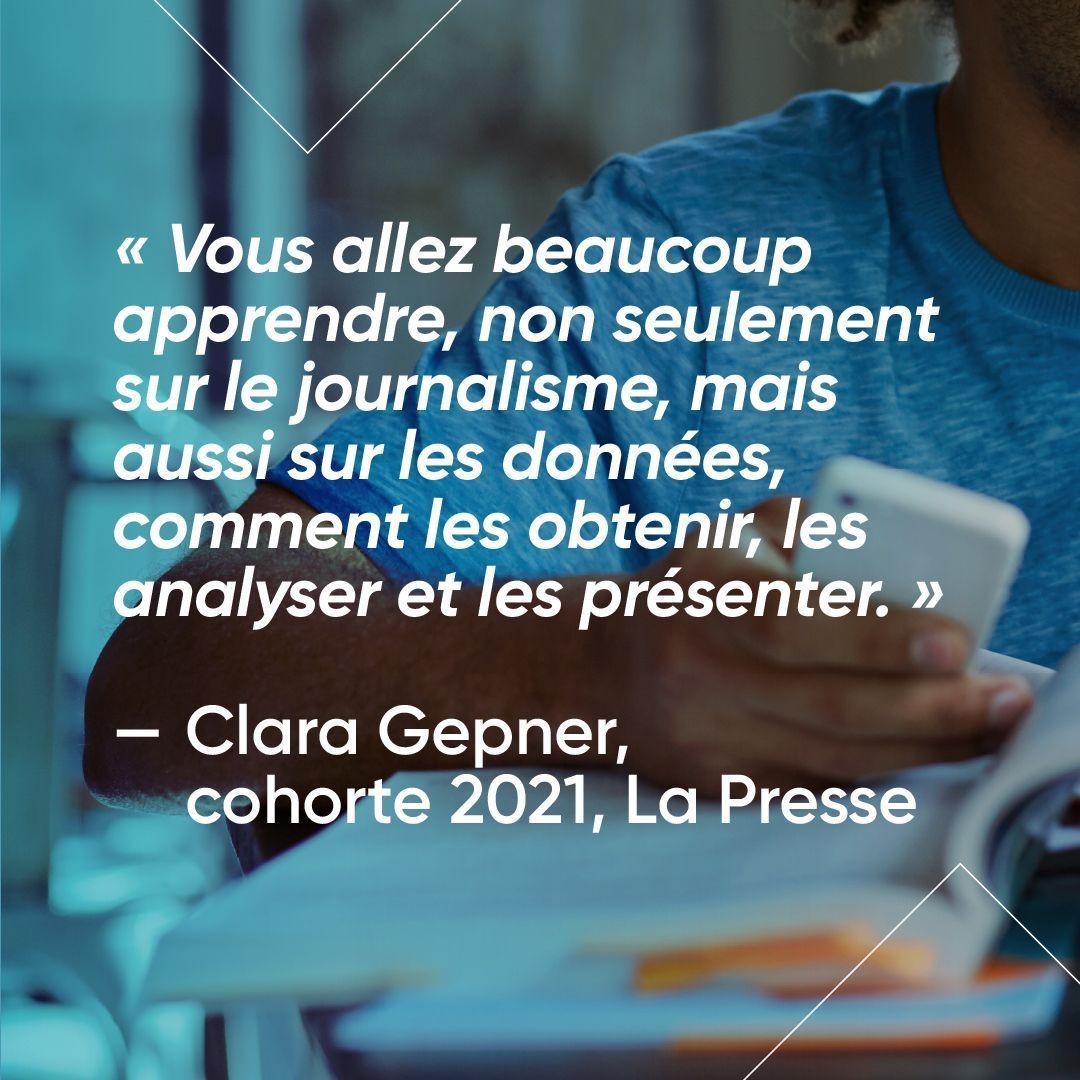
IVADO “Data Storytelling” internship scholarships
- Explore the 12 articles produced by the 2021 recipients, about resilient farms, vaccination, air quality, etc. Read the articles (in French) »
- Philippe Robitaille-Grou, a former “Data Storytelling” internship recipient, won first prize in the prestigious Bourse Fernand-Seguin 2021 science journalism competition, organized by the Association des communicateurs scientifiques du Québec and Radio-Canada.
IVADO, driving inspiration
Black History Month 2022: Claude Codjia, Imourana Alassane-Kpembi, Nadine Beauger and Schallum Pierre, four researcher members of the IVADO health community, talk about their career journeys, aspirations and challenges. Read the interviews here »
IVADO has provided funding to 100 postdoctoral researchers in the last few years. While some have gone on to careers elsewhere in Canada and internationally, others have become professors locally, including in Montréal, and have continued their involvement with the IVADO community. They include Golnoosh Farnadi (HEC Montréal) who, among other things, collaborated on the IVADO MOOC on Bias and Discrimination in AI, Guillaume Rabusseau (Université de Montréal), who is contributing to a variety of teaching content, and Margarida Carvalho (Université de Montréal) holder of one of the FRQ-IVADO Chairs in Equity, Diversity and Inclusion.
Luc Vinet, CEO of IVADO, was appointed a member of the Order of Canada by Her Excellency the Right Honourable Mary Simon, Governor General of Canada, on December 29, 2021. Read the news item »
Transfer
Industry + research: a successful synergy
In Canada, the digital transition is continuing to gain momentum in organizations, and the standardization of so-called hybrid work modes has accelerated the pace. This paradigm shift is being accompanied by increased needs for digital know-how. IVADO is providing support and guidance to more than 100 small, medium-sized and large companies, as well as non-profit organizations and public-sector stakeholders, to enable and expedite implementation of technology solutions in response to challenges they face.
0
IVADO industrial members
> 0
researchers involved in IVADO collaborative research projects, representing 19 universities across Canada
> 0
students involved in IVADO collaborative research projects
3 flagship initiatives in focus
Successful collaborations between industry and academia

AI at the service of mental health
Mental health disorders affect a significant proportion of the Canadian population. Proper management of patients suffering from them is therefore of paramount importance. To address this, Montréal-based company Aifred Health provides a clinical decision-support tool that aims to guide physicians in that process. To optimize the tool’s decision-support models, Aifred Health’s machine-learning department, with IVADO as go-between, partnered with a research team at Polytechnique Montréal. This collaborative project led to the development of a system that intelligently iterates through dozens of unique model configurations to find the most efficient one. That in turn resulted in development of a prototype model, capable of tracking patients’ response to their treatments by exploiting longitudinal data. This gives physicians a clearer idea of how their patients’ condition is improving or deteriorating so that they can act in a timely manner, this improving the odds of remission. The prototype model is enabling Aifred Health to fine-tune its tool and thus contribute directly to improved quality of mental health care.
Team: Jean-Jules Brault and Julien Michelet (Polytechnique Montréal), Robert Fratila (Aifred Health)

AI as an icebreaker
As the centrepiece of the shipping network linking the Atlantic Ocean to the Great Lakes, the St. Lawrence Seaway is vitally important to the Canadian and U.S. economies, with more than 200 million tonnes of cargo moving through it each year. The Seaway is, however, subjected to the rigours of Nordic winter conditions, and shipping companies therefore have to contend with freeze-up, which can cause delays and even damage vessels. Current forecasting of freeze-up has an elevated margin of error because it is largely based on seasonal temperature forecasts, which are unreliable where the Seaway is concerned. Seeking to optimize its wintertime operations using AI, Fednav, Canada’s largest oceangoing bulk shipping company, called on IVADO, which facilitated implementation of a collaborative project with researchers at McGill University. It took the form of a postdoctoral fellowship, with the awardee tackling the daunting task of developing a more robust multi-parameter model for predicting ice formation between the Welland Canal and Québec City. Based on the extremely successful results of the fellowship, the awardee was recruited by the National Research Council of Canada (NRCC), where she is continuing her research in collaboration with Environment and Climate Change Canada (ECCC).
Team: Amélie Bouchat and Bruno Tremblay (McGill University), Pascale Bourbonnais (Fednav), Philippe Lamontagne (CNRC), Jean-François Lemieux (ECCC)

Managing inventory with AI
Transit authorities work in a constantly evolving environment and must deal with multiple challenges. One such challenge facing the Société de Transport de Montréal (STM) is integrated maintenance planning of its rolling stock, whose performance is dependent on parts being available at the right time and in the right place. The goal is to prevent inventory shortages while limiting storage costs—in other words, striking the perfect balance. To improve its operational efficiency, the STM relies on a number of IT tools and systems adapted to the needs of fleet management and maintenance, and their use generates a massive amount of data that can be exploited. Via a collaboration with IVADO, the STM benefited from the expertise of a graduate student intern who developed data visualization tools that enable improved inventory management. As part of a vision for the creation of a data piloting centre, the student joined the transit authority to work on a five-year research program comprising 12 projects focused on data monitoring, development of decision-support tools, and demand forecasting. Each of these research avenues promises to improve the STM’s performance, with technology as the lever.
Team: Robert Pellerin (Polytechnique Montréal), Étienne Le Pironnec, Élyse Casavant, Marie-Annie Faubert and Timothy Ayoub (STM)

Cream of the crop: AI for enhanced sustainable farming
Food security is a central concern of any government, and its importance has been further highlighted by climate change and the recent COVID-19 pandemic. Implementing efficient and sustainable agricultural strategies is therefore crucial, and Logiag is doing just that. This Québec-based SME contributes to the implementation of sustainable agriculture practices by providing consulting services to farmers based on constantly evolving IT tools. Logiag sought to enhance the value of historical soil quality data in a library that it has built up since its founding, so as to optimize the agronomic and agri-environmental recommendations it makes to its farm clients. The firm therefore called on IVADO, which oversaw the launch of a collaborative research project with researchers at Polytechnique Montréal. One master’s student was assigned responsibility for a project to forecast farmers’ crop practices. Using algorithms, Logiag can predict the agri-environmental repercussions of future farm practices and suggest alternative management strategies, customized to individual farm companies. As a testament to the success of this collaboration and its already promising outcomes, the student is now pursuing her studies at the PhD level.
Team: Ambre Dupuis, Bruno Agard and Camélia Dadouchi (Polytechnique Montréal), Charles Nault and Johanie Fournier (Logiag).
Teaming up to resolve concrete challenges
“People mistakenly think that university researchers are only interested in academic research. Many projects are conducted in collaboration with industry, and for me these are the most interesting ones, where we truly solve everyday problems by making use of academic research results from other researchers. It’s really through projects in industry and in civil society that we succeed in enhancing the value of this research.”
– Bruno Agard, Professor, Polytechnique Montréal

A sentimental journey to decision-making: AI and the markets
Financial theorists have long considered market traders to be rational, objective participants. That assumption has since been challenged, and the importance of sentiment in financial decision making is now acknowledged. The Montréal firm ElligencIA has grasped this. Observing that people comment extensively on financial matters online (via social platforms, in forums, on websites), it sought to tap that goldmine of data using AI to create sentiment indicators for financial markets. For that ambitious project, ElligencIA contacted IVADO, which put the firm in touch with experts at Université de Montréal and HEC Montréal. The collaboration led to the establishment of three research internships for master’s students. The internships addressed the first phase of the project: the creation of an indicator for the five most traded currencies. Today, ElligencIA’s tools cover 10 or so currencies along with six cryptocurrencies. The sentiment analysis used exchanges on Twitter, specialized documents and images (soon to be expanded to include videos). ElligencIA was very satisfied with the outcomes of the research, and recruited all three interns at the conclusion of their studies.
Team: Gilles Caporossi, Rui Fan, Simon-Michael Tye-Giguere and Vincent Grégoire (HEC Montréal), Samy Djezairi and Esma Aimeur (Université de Montréal), Elsa Vande Voorde (ElligencIA)
Positive feedback on the collaborative research experience!
“Thanks to IVADO, we met three challenges with aplomb. The first was recruiting in record time [. . .], the second was the challenge of receiving subsidies, and the third was setting up and sustaining an R&D unit within our company.”
– Elsa Vande Voorde, Co-founder and CEO, ElligencIA
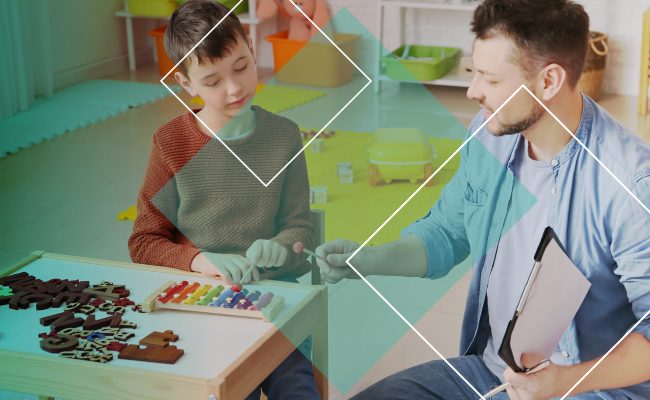
Giving voice to autistic people thanks to AI
Autism is a neurodevelopmental disorder that affects approximately 1.5% of Quebecers. Despite the incidence and extent of the disorder, there is a glaring shortage of data on the reality of autism in Québec, which is disappointing to the Fédération québécoise de l’autisme (FQA). To remedy that shortcoming, the FQA embarked on a large-scale project to collect data from its community, partnering with Videns Analytics, a Québec-based AI and data valorization firm. They faced a significant obstacle, however: people with autism experience, to varying degrees, serious communication challenges. So how could the project partners get in touch with them effectively? They had the idea of developing a chatbot tailored to the communications needs of autistic individuals that would allow them to interact with the FQA and vice versa. To that end, Videns sought out IVADO, which referred them to experts at UQAM. The resulting collaborative research project will deploy deep learning and natural language processing techniques to develop the chatbot, which promises to be an important enabler of inclusion for autistic people once completed.
Team: Fatiha Sadat and Janosch Ortmann (UQAM), Saoussen Mbarek (Videns Analytics)

Meeting high-voltage threats: AI as a defence against cyberattacks
Information systems are by now everywhere in our lives, but are vulnerable to cyberattacks. Such attacks are becoming increasingly common and are especially worrying when they target critical infrastructure, such as electric power grids. Hydro-Québec takes this threat very seriously, and has committed to continually upgrading the security of its control systems and the IT infrastructure underlying them. With the support of IVADO, the public utility began a collaborative research project with a team at McGill University. This project is using sophisticated electrical system co-simulation platforms and associated communications networks to analyse the impact of false data injection attacks (FDIAs). These FDIAs will aim at important targets, namely automated control of power generation and economical allocation across distributed power systems using a multi-agent architecture. This will enable the research team to develop mitigation measures using data from multiple sensors, load forecasting systems and state estimators. These mitigation measures will be validated using Institute of Electrical and Electronics Engineers reference models for power systems and eventually incorporated into Hydro-Québec’s automated defences.
Team: Xiaozhe Wang (McGill University), Elnasser Abdelhafez, Marthe Kassouf and Rawad Zgheib (Hydro-Québec)

AI in the service of building accessibility
Accessibility of buildings is a key issue for people with disabilities. Whenever they are confronted with an inadequately designed building, they are prevented from engaging fully in society. The non-profit Jalon Montréal, which works in the field of sustainable mobility, is all too familiar with this unfortunate situation. Its staff know that, to remedy the situation, they must first get a clear picture of it. Traditionally, however, the collection of data on the accessibility of buildings has involved expensive and time-consuming field methods that are prone to human error. The NPO thus decided to use AI to accomplish this task, which led them to knock on IVADO’s door. After locating the necessary research expertise at Université Laval, IVADO put together a collaborative research project, which will officially begin in the summer of 2022. The team will work to constitute a database of photographs of buildings, which will be used to train algorithms to detect building features that facilitate accessibility (e.g., ramps, automatically opening doors) or hinder it (e.g., stairs, narrow doorways). Once trained, the algorithms will be an indispensable tool for gathering data on building accessibility in a real-world context.
Team: Mir Adolfazl Mostafavi and Sarra Ghodhbane (Université Laval), Sébastien Beaudoin (Jalon Montréal).

AI as a stock market gatekeeper
In recent years, the popularity of financial derivatives has brought about a surge in the daily flow of information and data within the stock markets, which are growing in capital value. Financial regulators, however, must respond to that growth and adjust their market surveillance methods, which have traditionally been based on cumbersome and time-consuming manual analysis of market transactions. If they do not make those adjustments, there is a risk that possible violations will go unnoticed. Foreseeing this predicament, the regulatory division of the Montréal Exchange saw the need to upgrade its surveillance practices. With AI seeming to offer the best solution, the Exchange engaged IVADO, which put it in contact with researchers specialized in machine learning and natural-language processing. The resulting collaborative research project has enabled development of algorithms that can detect abnormal transactions among new data generated by the Exchange market and in turn alert analysts to potential fraudulent transactions. The algorithms, which drastically reduce operating costs and lead times, are currently being validated by the Exchange’s analysts.
Team: Gilles Caporossi (HEC Montréal), Manuel Morales (Université de Montréal), Marc Stephens (Montréal Exchange)

Solving the puzzle of appointments: AI and medical logistics
Radiation therapy (RT) is one of the most frequently used treatments for cancer. To be effective, RT must be initiated according to strict timelines, which hospitals are not always able to meet because of chronic shortages of human and material resources. This is compounded by the logistical complexities of planning RT treatments on a hospital-wide scale. In the eyes of medtech startup Gray, planning optimization is the most effective solution for addressing time overruns in RT. To that end, it offers an integrated RT treatment planning platform that leverages deep learning. The platform was the result of PhD research work, and became a reality thanks to the IVADO Entrepreneur Postdoc Fellowships program. The collaboration between Gray and IVADO was so successful that it continued after the conclusion of the program: IVADO supported the startup in perfecting its platform, providing it with the expertise of researchers at Polytechnique Montréal. The resulting collaborative research project took the form of a post-doctoral fellowship, in which machine learning was harnessed to develop a model that can predict patient arrivals and schedule treatments accordingly. This has greatly enriched the platform.
Team: Antoine Legrain and Tu San Pham (Polytechnique Montréal), André Diamant and Marc-André Renaud (Gray)
IVADO’s support for AI entrepreneurship
IVADO’s industrial members include 32 startups. This support is complemented by several programs and initiatives that aim to develop entrepreneurship in AI in Québec and the rest of Canada, notably by facilitating the transfer of academic expertise to industry settings. In addition, IVADO has made its partnership with the Mouvement des accélérateurs d’innovation au Québec (MAIN) official, strengthening its impact right across Québec. Also worthy of mention is the $100,000 in funding, awarded for the fourth year in a row, to the Datapreneur program of the Centre d’entrepreneuriat de l’Université de Montréal (CEuMONTREAL). This past year IVADO and CEuMONTREAL hosted a series of four webinars, “Inspirer en entrepreneurIAt”, which attracted more than 150 participants. As of the end of March 2022, some 60 startups are benefiting directly from services and programs implemented by IVADO.
“Scientist in Action” is a new program launched in winter 2022 that will see 10 professional master’s students complete credited internships with seven Québec-based startups beginning in summer 2022.
“Scientist in Residence” is the other new flagship program this year. It will enable five startups in Montréal, two in Québec City and one in the Montérégie region to benefit from the expertise of skilled PhD students in support of their research and development projects, beginning in the summer of 2022. In a welcome development for gender representation in AI, the cohort of eight awardees includes five women.
The Entrepreneur Postdoc Fellowships program, introduced in 2018, has already enabled eight awardees from academia to bring their entrepreneurial projects in AI to fruition. They include Marco Bonizzato and Muhammad Sohail, who founded NeuralDrive and BioBenchAI respectively; both of these startups are now full-fledged IVADO members. This past year, the Arbour Foundation has supplemented the program’s benefits, increasing the amount of research funding available to awardees to $20,000 each. Read about the career journey of 2019 awardee Selçuk Güven »
Inspiring journeys
From idea to startup!
Marco Bonizzato, a former IVADO postdoc fellow and also the 2020 recipient of entrepreneur postdoc funding, co-founded NeuralDrive, which develops technology with the potential to help people with spinal cord injuries by stimulating their brains with electrical impulses and enabling them to walk again.
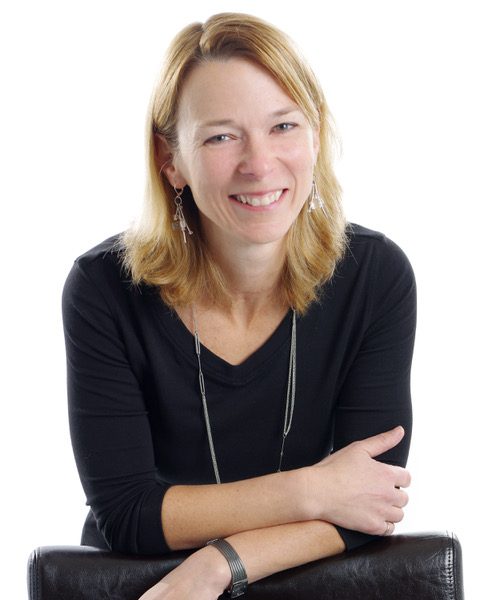
“As a fairly recent IVADO member, it was only a year or so ago that I learned first-hand about the extraordinary support that its team of advisors can provide to any organization. Thanks to its background work and outstanding intermediation, I was able to access various funds, research organizations and specific professors. I am hugely grateful to IVADO and its outstanding team for their support, which will allow Médyx to achieve its research and development objectives.”
– Catherine Mondor, Médyx
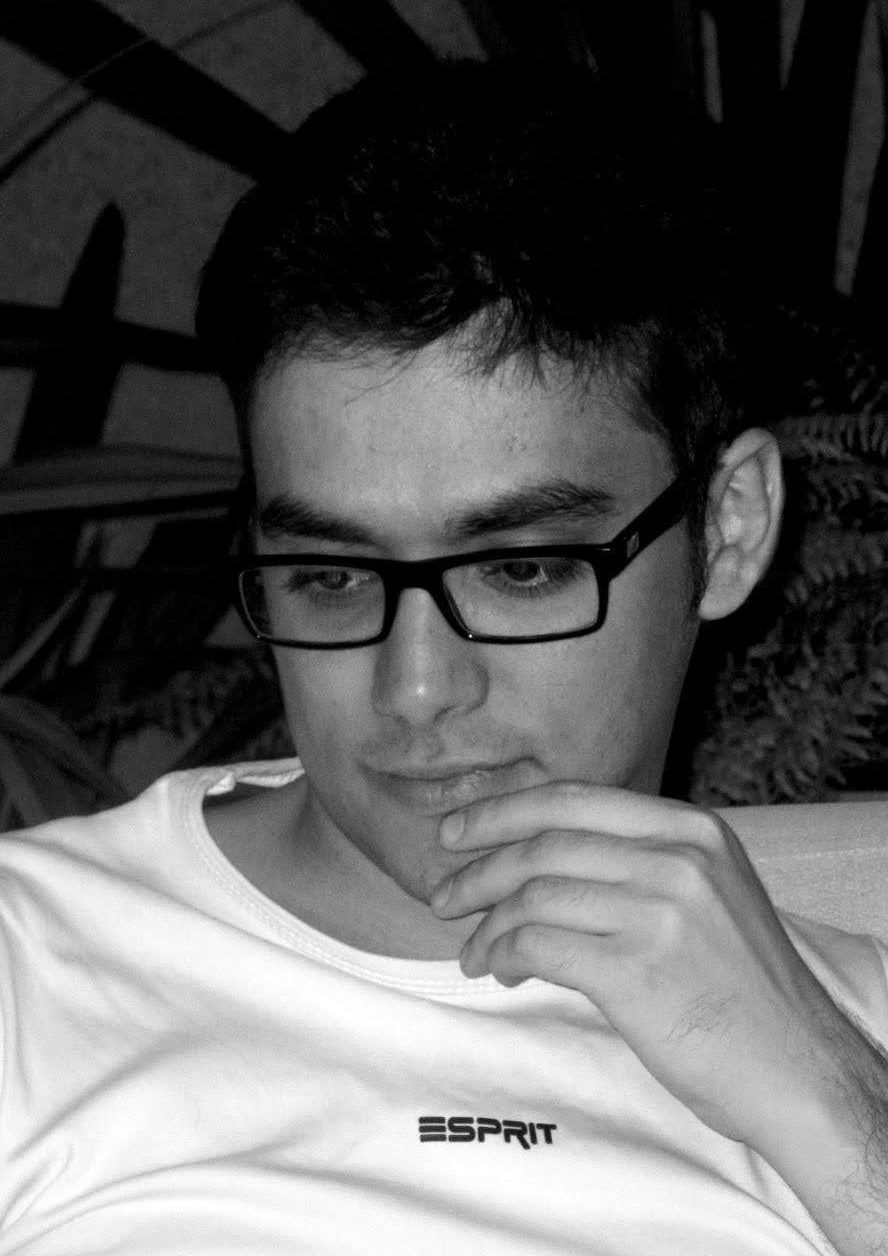
“I, as an IVADO PhD Excellence Scholarship laureate, feel indebted to Quebec’s digital intelligence ecosystem, as being part of the IVADO community has helped me tremendously in honing my research and practical skills. Therefore, the main driving force for my interest in the Scientist in Residence program has been giving back to the community that has helped me during the last three years.”
– Davood Wadi, HEC Montréal
Community
People skills and diversity: engines of innovation in AI
One of IVADO’s strategic assets is its community. Looking back to 2016, the Institute’s launch kickstarted the growth of Montréal’s and Québec’s AI capacity. IVADO acted as a catalyst that resulted in a substantial volume of funding for students and researchers, and facilitated the establishment of numerous AI labs in the province by international companies. Today, it is IVADO’s “distributor” role that is fuelling innovation: the IVADO members’ research centres are ensuring a constant flow of AI knowledge within the ecosystem, to the benefit of its industrial partners.
> 0
people involved in the EDI and ethics initiatives championed by IVADO
> 0
participants in IVADO student activities
> 0 $
in sponsorships awarded to support AI research and science
3 flagship initiatives in focus
The IVADO student community: powering inspiration
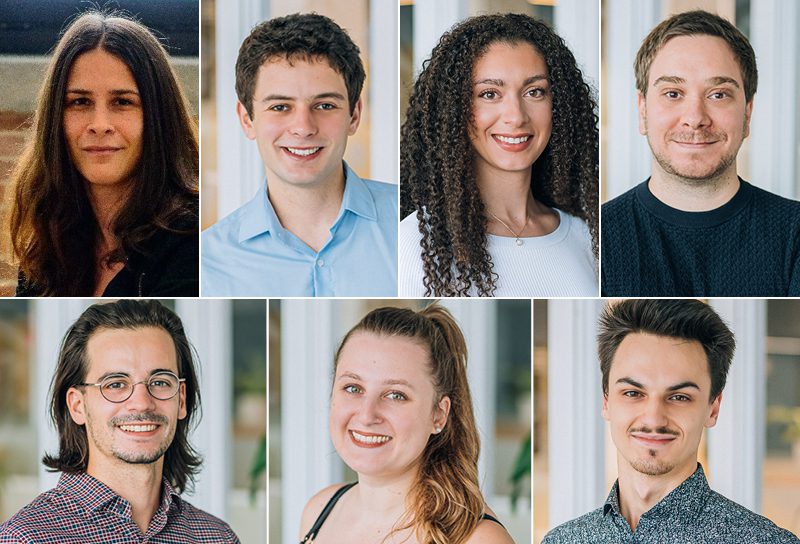
IVADO-funded students and those in the broader AI community have a strong presence in all of the Institute’s activities. As such, while the IVADO student strategy pursues three main objectives, it intersects transversally with each of the four strategic pillars. At the core of this approach is the IVADO Student Intersectoral Committee, which helps strengthen social, professional and academic ties among students “on the ground.”
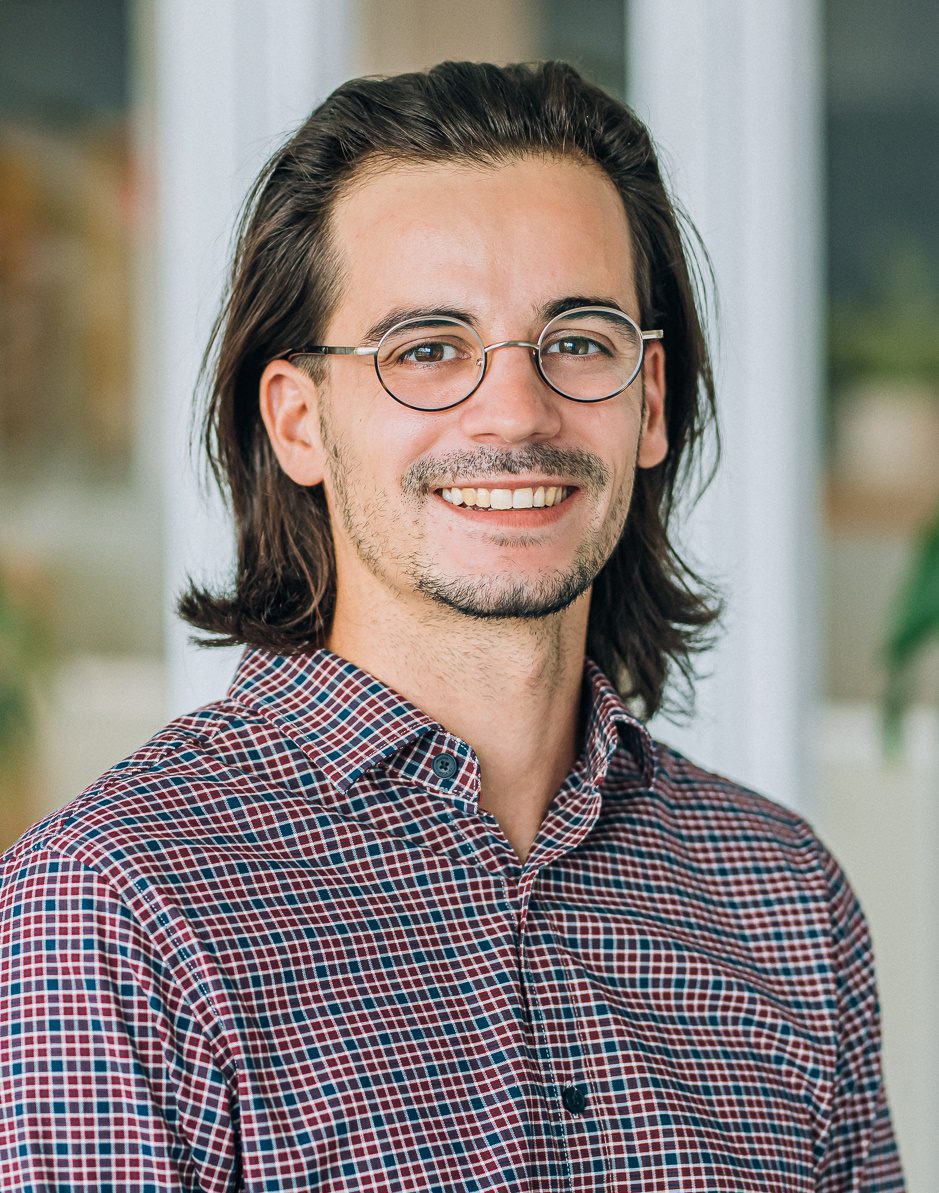
“My experience on the Student Intersectoral Committee put me in touch with a team that is passionately committed to the well-being of the IVADO community. With a combination of enthusiastic students and the IVADO staff assisting them, we’ve organized events showcasing projects by students that reflect their unique academic journeys. My year as a committee member has helped me gain solid event-management skills that will be very useful to me going forward.”
– Jérémie Tousignant, jointly in charge of events organization on the IVADO Student Intersectoral Committee
Supporting development and transfer of student-led research
Supporting students’ professional development
Developing, consulting and supporting a dynamic, inclusive and multidisciplinary community
Toward “responsible” AI
Canada is renowned internationally for its avant-garde approach to ethical frameworks for AI. Montréal has been at the forefront, with the 2017 launch, under the aegis of Université de Montréal, of the work that led to the Montréal Declaration for a Responsible Development of Artificial Intelligence, which has been translated in Chinese, Portuguese, Spanish, German, Russian, Arabic and Italian. Since its founding in 2016, IVADO has made equity, diversity and inclusion as well as ethics in IA integral to all its activities, and in 2018, the Institute adopted a reference framework to formalize its line of conduct. Since then, three priorities have guided its operations.
Priority 1: Attract new diversity talents in AI
> 2,250 people reached by IVADO activities and funding this year
- IVADO is involved in Indigenous Science Fair presented by the Québec Aboriginal Science and Engineering Association (QASEA), with 75 young students from 11 Aboriginal communities taking part.
- IVADO is supporting the Parité Sciences initiative, equipping and raising awareness among teachers in 70 CEGEPs to drive female enrolment in bachelor of science programs.
- 1,580 students from nine primary schools in underprivileged neighbourhoods of Greater Montréal have been introduced to AI thanks to the Eureka! Festival school visits, sponsored by IVADO.
Priority 2: Foster inclusion of underrepresented groups in AI at the institutional level
> 1,150 attendees at IVADO-led awareness and inclusive-practices development activities
- In 2020–2021, IVADO surveyed its member research centres on their EDI practices and needs. This year, the Institute set up coaching to help with application of the recommendations that emerged from that process.
- Two themed panels were extremely successful: “Women and Diversity in AI“ and “Valuing Black Communities in AI.”
IVADO Action Inclusion Challenge
This Challenge completed by some 30 participants led to the creation of five AI-driven solutions for resolving inclusion issues identified by IBM, National Bank of Canada, the CHUM and Myelin Solutions. View a testimonial by Nauva Lesperance, Division Head, CHUM.
Priority 3: Generate and disseminate new knowledge on EDI in AI
> 2,500 registrations for the MOOC on Bias and Discrimination in AI
- This year, IVADO directly contributed to training completed by some 770 people on ethics and EDI issues in AI (excluding MOOC registrants).
- The Institute was involved with the Public Awareness Working Group of the Government of Canada Advisory Council on Artificial Intelligence.
- IVADO also actively contributed to the co-development of an opinion paper on ethical work organization in IA by the Québec Science and Technology Ethics Commission.
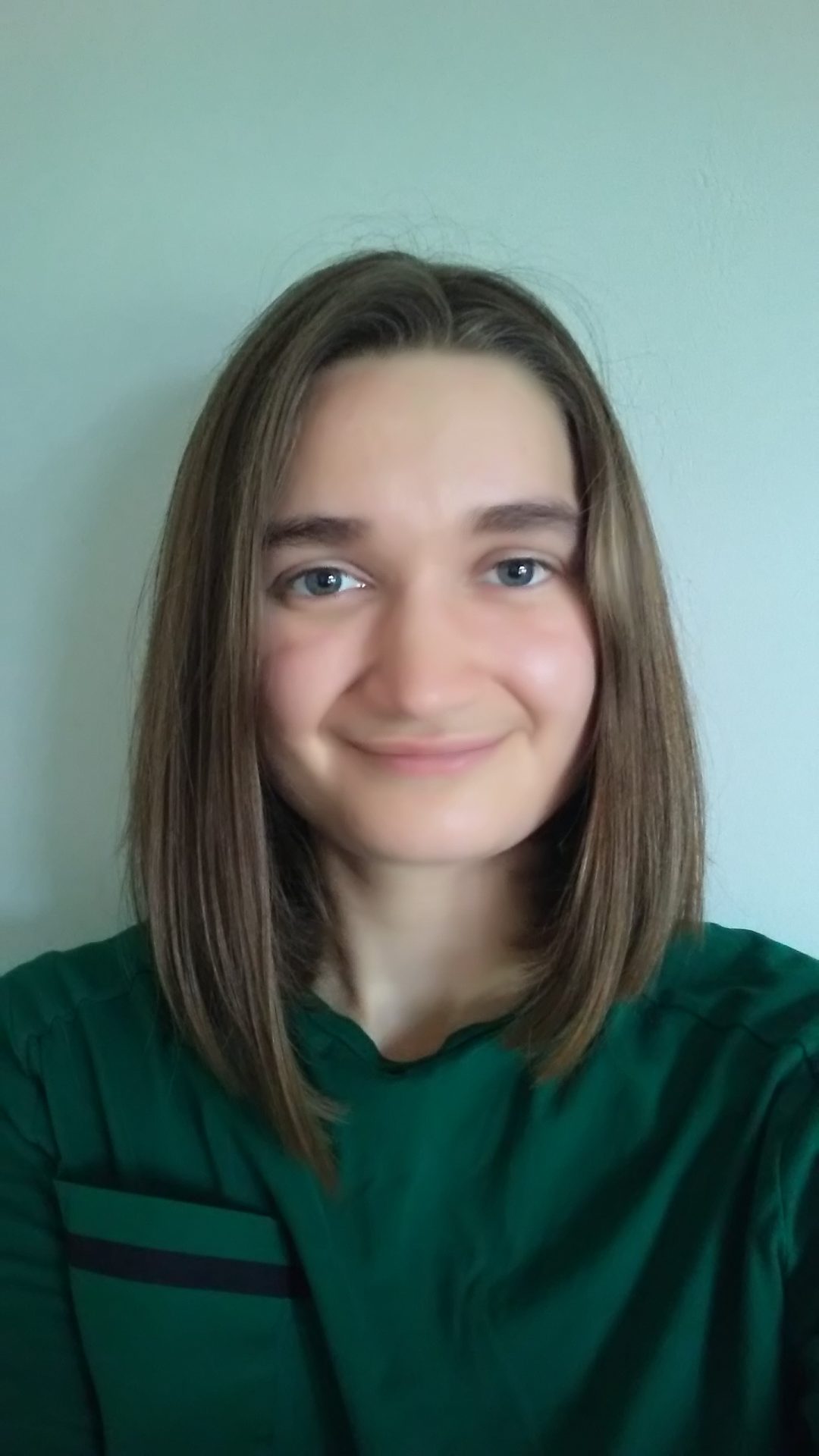
“The Ethics + EDI in Digital Intelligence webinar is effective in addressing the key issues of ethics and EDI in the field of artificial intelligence. I learned what questions to ask at all stages of a project to ensure it is ethically acceptable. I also got advice on how to promote EDI in workplaces and on application of algorithms. I recommend it!”
– Ève, master’s student and participant in the Ethics + EDI in Digital Intelligence webinar
Acknowledgments
AI as a social and economic driver: a shared ambition
The entire IVADO team thanks our community members for their constant support and remarkable ingenuity. In an increasingly complex international context, AI research and knowledge transfer are key to continuing to tackle previously unseen challenges in a concerted manner.

